About Growing Food on Mars... and perhaps anywhere...
It is an important question. If we are planning to launch ourselves towards a barren and cold planet, where we are planning to live for the rest of our lives, what are we going to eat? Or else the phrase "rest of our lives" would only mean a few days.
You see when it comes to growing food on mars, we also have to consider growing food on our way there and back, since it will take us anywhere between 150 to 300 days for a one way trip. For this reason, I'll talk about both growing food in space as well as on the surface of mars.
As of today, we have over seventy varieties of packaged space food that we can consume in space. And their tastes can be adjusted as per our requirements. We can also have coffee brewing machines. But still, growing food in space provides additional benefits. It's psychologically beneficial for people who live in such stressful environment, with little social contact, for a long time. Getting fresh food there would be a huge relief. Plus it can decrease the payload from earth as well.
This is an image of soybean being grown in space.
Growing food requires sunlight, soil with ingredients, water, and enough atmospheric pressure as well. Plants also need gravity for their growth, and for the development of roots. But when it comes to space, gravity is not something we can provide the plants. We have solved this problem some how (This means I read about it and understood nothing much, so I won't talk about how we solved it... apologies for being more about physics than botany) and we can now grow a variety of plants in the space.
Experiments that were carried out over a year on ISS proves we can grow lettuce, wheat, rice and much more.
That's basically how our journey to mars could be made fulfilling (for our stomachs at least).
Now, about being there, we haven't yet carried out any experiments on mars. Let me tell you a story about this.
In the beginning, Elon Musk planned to send a greenhouse on mars. But the costs of achieving this were tremendous. Many improvisations had to be made, which would take more time, and more money. But, this also meant he had more time for some research. And as a result of this research, he declared he would be sending humans on mars, with his greenhouse of course. The first men landing on mars will essentially be the first humans and farmers on Mars!!
Back to growing food on the martian soil. Sending a greenhouse along with a robot who would monitor the plant growth would be even more costly. Cheaper way we used is to build a lab on earth and find some soil which is almost like the martian counterpart, and conduct our experiments, this is so much easier, especially when lack of gravity has now become a problem we have solved for growth of the plants.
And we have achieved success to some extent. As of now, we are planning to look for the plants that can grow in such harsh environments in a soil that is not organic at all. Martian soil is just crushed volcanic rock and it also has some perchlorates (harmful chemicals) which adds to our list of challenges:
- The perchlorates need to be removed from the soil, and put to some use elsewhere.
- Enough nutrients and microorganisms need to be added to the soil. Continuous water supply has to be maintained.
- The plants also have to be protected from the dangerous UV rays during the day, plus the cosmic rays which are present at all times.
- About atmosphere, we need a source of nitrogen on mars, which is essential for plant growth. Carbon dioxide and oxygen are currently manageable.
- The recycling has to be near perfect. Human waste, unconsumed parts of plants, etc. just can't be allowed to go wasted. Especially when every bit of resource counts. This is about our survival there. To get an idea about the scarcity we will face, you can brood over the fact that we can't afford any non vegetarian food there, since we won't be able to feed the animals along with us in the first place.
Out of the research that is done specifically for growing consumable food on mars, we now have the solution for some of our problems on earth as well. For example, the recycling has to be near perfect in 2050 since the resources will be very scarce. All the barren land has to be brought into cultivation. And we must be able to grow food in any environment, with little effort.
Now about the solutions we have managed to come up with yet.
- Providing plants light in the form of blue and red led lights helps them grow under a roof, without sunlight. This is because plants absorb all the light from sun except the green light, which we see as their colour.
- We also need to carry enough microorganisms that can produce oxygen for the plants as well as for us. Since plants don't help continuously adding oxygen to the environment. They take it back during night. But the microorganisms will constantly produce oxygen for us.
- Very recently, a research team at MIT came up with an idea of living on mars using dome shaped structures which would have tunnels beneath them where the environment would be safe enough for us to live wearing just shirts and pants! Plus we can even grow fish there!! This will also consume a lot of water though.
Bottom line is, we are focused on the food right now because we are advancing into the space sooner or later. We will mining the moon for nuclear energy. We will be on the asteroids and mine them entirely to make huge spaceships out of them. And there will be some of us there. We will need a food source to eat for years at a time. A nutritious, fresh, and constant food supply in this case, would be a huge blessing. Plus it answers some of the questions about feeding the population we will have on earth by 2050.
Sources:
- https://www.livescience.com/52444-growing-food-on-mars.html
- https://www.nasa.gov/feature/can-plants-grow-with-mars-soil
- https://www.nasa.gov/feature/farming-in-martian-gardens
- http://www.agriculture.com/technology/crop-management/farming-in-space
- https://newatlas.com/mars-city-design-redwood-forest/52018/
See you soon, Take Care.
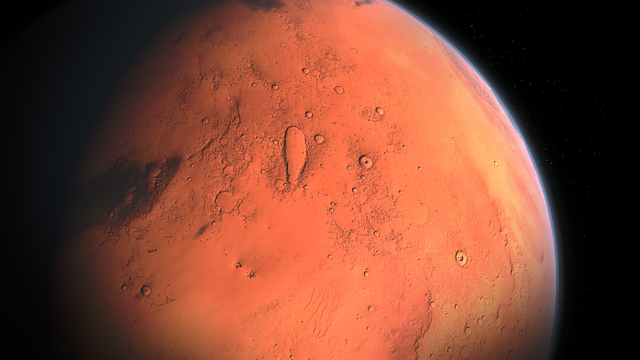
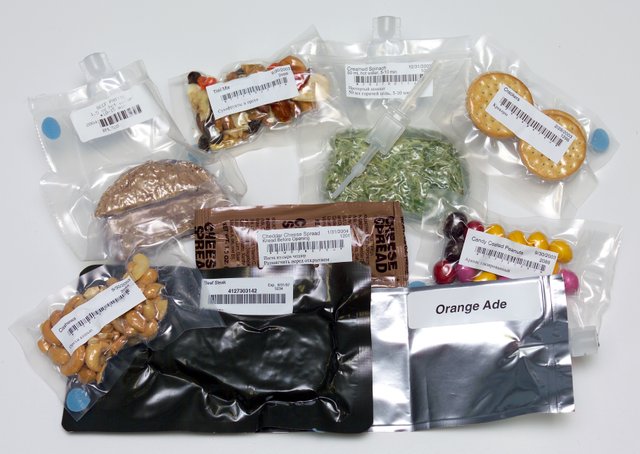
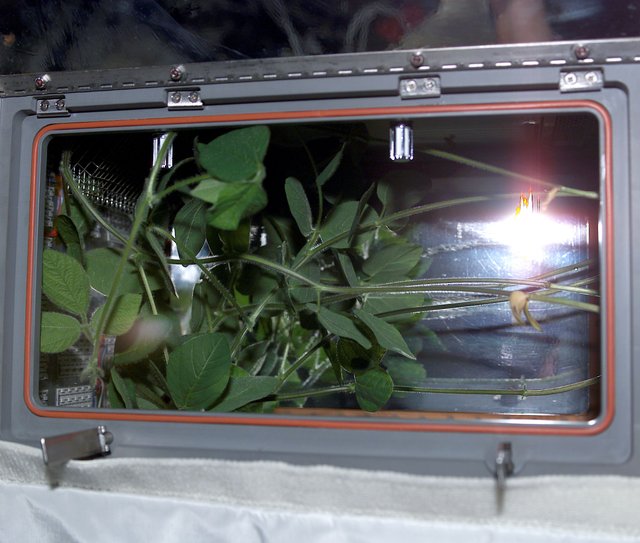
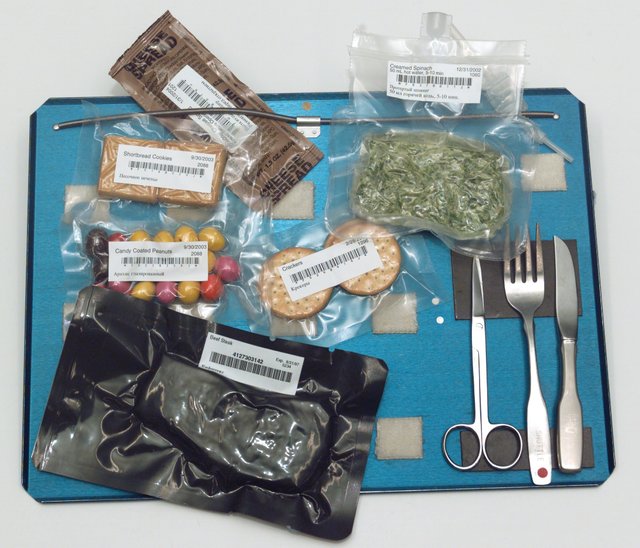
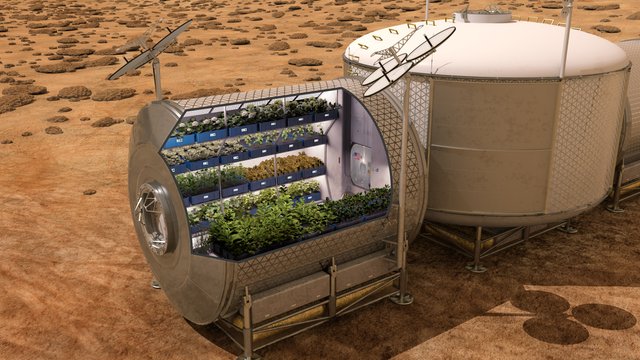
Well researched work. This is good post
how interesting, space is a mystery
do you think people can open it ever?
A few decades at most. Since a huge number of people will be working on this one goal of expansion and growth. All the countries work on it hand in hand, sharing all the knowledge they discover and all the technology they invent... How they managed coming together is more of a mystery to me right now than the space itself, lol.